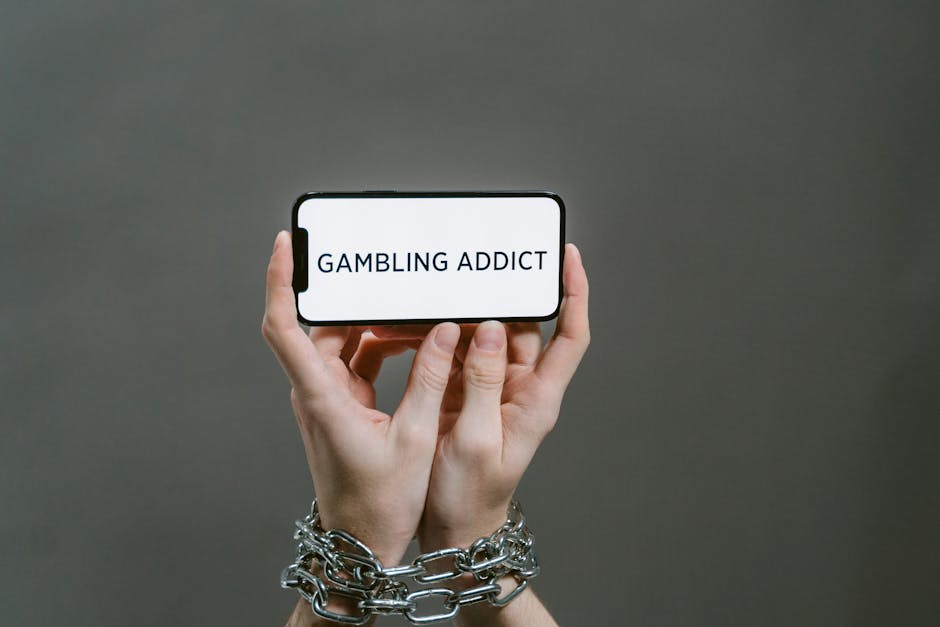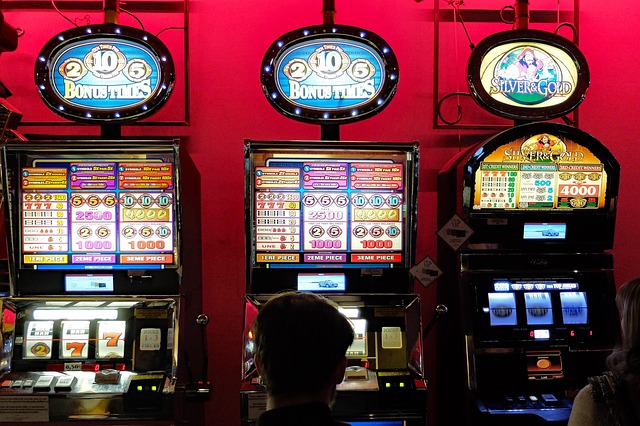Why Early Detection Matters
It usually starts quietly. A few chips on a weekend. A scratch-off ticket here and there. The thrill feels harmless at first—casual, even social. But for some, those small bets plant deeper roots than expected. The line between entertainment and escape blurs fast, especially when life’s stressors start piling up. Before long, wins feel like relief, and losses feel like personal failure. That’s when chasing starts, and the spiral begins.
Waiting too long to step in can mean deeper financial holes, fractured relationships, and a mental toll that isn’t easy to measure. The truth is, the longer it festers, the harder it becomes to pull back from the edge. Intervention isn’t just about stopping a habit—it’s about preventing the damage that comes with delay.
And here’s the catch: the face of problem gambling isn’t always who you’d expect. It’s not just the guy glued to the poker table or someone betting rent money on sports. It’s anyone looking for escape, validation, or control. Young professionals. Retirees. Sometimes even teenagers. Problem gambling doesn’t fit a mold. That’s why spotting the early signs—and acting on them—matters more than ever.
Subtle Signs You Might Miss
Not every problem gambler looks the part. Sometimes, the earliest red flags are behaviors that seem small or easy to brush off—but they matter. One of the most common early signs is gambling more often than usual. What started as a weekend poker night or the occasional online bet slowly becomes a daily habit. The increase is usually subtle at first, and that’s what makes it dangerous.
Then there’s chasing losses. This isn’t just about losing and trying again—it’s the refusal to walk away, that desperate belief that the next risk will fix everything. Spoiler: it rarely does. It builds a cycle of stress and bad decisions that’s tough to break.
You might also notice a shift in how someone talks (or doesn’t talk) about gambling. Defensiveness, vague stories, or a sudden need for secrecy around money and time spent? Those are warning bells. The less someone wants to discuss it, the more it probably matters.
Finally, keep an eye on mood swings that sync with a betting outcome. If someone goes from on-top-of-the-world to completely wrecked because of a win or loss, that’s a sign their emotions are hijacked by the game. At that point, gambling isn’t just entertainment—it’s controlling the room.
The Financial Red Flags
When gambling starts going from pastime to problem, the money trail is usually the first place it shows. Maxed-out credit cards and quiet borrowing—especially from friends or family—shouldn’t be brushed off as one-offs. It’s not about a missed paycheck or a bad month. It’s a pattern of chasing losses and using debt to stay in the game.
Next come the missed bills. Rent doesn’t get paid on time. Utilities get shut off. Food budgets shrink. If savings are disappearing without a clear reason, it could be because the money’s going somewhere no one’s talking about.
The most telling shift? Essentials take a backseat. Rent, groceries, even health expenses—they’re all suddenly less important than making the next bet. When someone begins to prioritize gambling over basic needs, that’s not just risky behavior. That’s a crisis in motion.
Spotting these signs early isn’t about judgment. It’s about catching silent red flags before things spiral even further.
Emotional and Behavioral Shifts
Problem gambling doesn’t always show up in bank statements first. Sometimes, the red flags are emotional—and harder to spot. One of the earliest signs? Isolation. People may start pulling away from family, canceling plans, or avoiding conversations that used to be normal. It isn’t about being busy. It’s about hiding something.
Mood swings get more extreme, too. A good win might bring a temporary high, followed by a crash the moment losses return. Sleep patterns often go out the window—late nights spent chasing bets, or anxious mornings after a risky session. The mental toll adds up fast.
Then there’s the lying. Small excuses become regular. Manipulation creeps in—borrowing money without context or blaming circumstances when confronted. Defensiveness can flare up if anyone even mentions the word ‘gambling.’
And here’s the kicker: symptoms of anxiety or depression often show up only after gambling. It’s not always clinical depression—it might be heavy feelings locked to a spiral of regret, shame, or stress. Still, those patterns matter. Catching them early makes all the difference.
The Role of Denial
Most people don’t wake up one day and say, “I’ve developed a gambling problem.” It creeps in. The wins are exciting, the losses feel like bad luck, and the next bet is always the one that’ll turn things around. That’s how denial starts—not with dishonesty, but with a deep need to believe everything is still under control.
Rationalization is a powerful defense mechanism. Problem gamblers often convince themselves they’re playing for fun, staying within budget, or just in a rough patch that’ll even out. They’ll say things like, “I can stop anytime,” or “I’m smarter than most players,” even as debt piles up or personal relationships start to strain.
Talking to someone who doesn’t think they have a problem requires patience and a light touch. Pushing too hard usually backfires. Start by asking questions, not giving ultimatums. Show concern without accusation. Highlight patterns gently—missed events, changes in mood, financial strain—and let them connect the dots. The goal isn’t to win an argument. It’s to plant a seed that gets them thinking about what’s really happening.
Denial is part of the problem—but it’s also the first thing that cracks when change begins.
What to Do When You Spot the Signs
Getting someone to talk about gambling can feel like walking on eggshells. Say the wrong thing, and they shut down. Say nothing, and the behavior keeps spiraling. The key? Lead with concern, not confrontation. Use clear, calm language. Keep it one-on-one. Don’t ambush them in a group or force the issue when emotions are high. Try something like, “I’ve noticed a few things, and I’m worried about you. Can we talk?” More listening, less lecturing. No blame.
Resources matter—but timing matters more. Once the door is open, offer options without pushing them. Mention support groups like Gamblers Anonymous, text or chat hotlines, and licensed therapists who specialize in addiction. But don’t oversell. Focus on showing that support exists and recovery is possible.
The goal isn’t to fix them in one conversation. The goal is trust. Let them know you’re there—without judgment, without ultimatums. That steady presence is sometimes all it takes to help them take the first step.
Tools That Help Stop the Spiral
Gambling addictions don’t usually crash down overnight—they build, quietly, in routines and habits. The flipside is encouraging: small changes can also stack in the other direction.
Start with guardrails. Time and money limits sound basic, but they work—if they’re enforced. Set hard caps before logging into an app or walking into a casino. Stick to them like your rent depends on it. If you lose your set amount, walk away, no second chances. And time? Set a timer. Gambling shouldn’t eat your entire evening.
Next up: digital firewalls. Blocking software like Gamban or BetBlocker can shut down access to gambling apps and websites. Combine this with self-exclusion tools offered by many betting platforms and casinos. These aren’t silver bullets, but they reduce friction—which can be the difference between acting on an impulse or not.
Then, habits. Smart rhythms matter. Schedule check-ins with someone you trust, even a quick text. Replace gambling windows with something else that hits the same dopamine—working out, playing music, cooking, whatever actually pulls your focus. The goal? Swap compulsive for constructive.
Beating the spiral doesn’t come from one giant leap. It’s boring, unglamorous consistency. Layer enough of these tools and habits together, and the grip starts to loosen.
(For a deeper breakdown, check out The Benefits of Self-Exclusion Programs in Casinos)
Conclusion: Prevention Is the Real Win
The truth is simple—early action saves time, money, and lives. Gambling issues rarely fix themselves. The longer the spiral continues, the harder it gets to climb out. But when people recognize the signs early and step in—whether for themselves or someone else—the road back is shorter and far more manageable.
There’s no rule that says gambling problems have to stay hidden. Silence is what gives the issue its power. Breaking that silence—whether it’s by asking for help, setting limits, or pointing out a concern—isn’t weak. It’s smart.
So stay watchful. Look for what’s not being said. Not everything shows up on the surface, but if something feels off, it probably is. Whether you’re the gambler or the observer, don’t wait for things to get worse. The earlier you move, the brighter the outcome.




